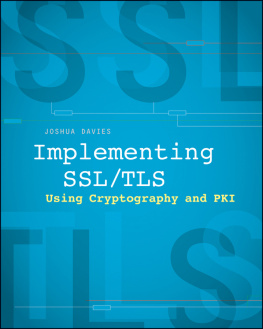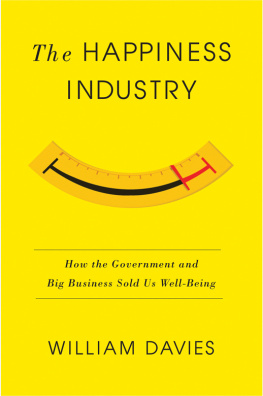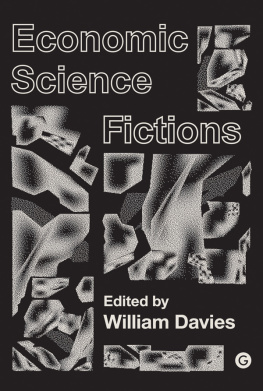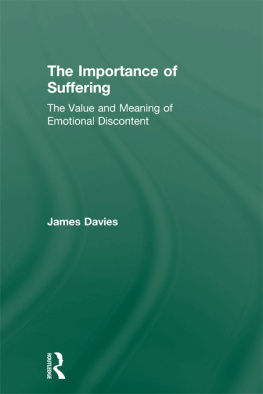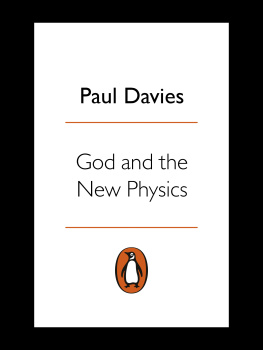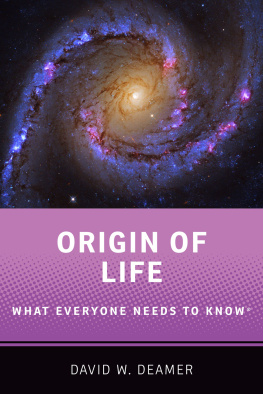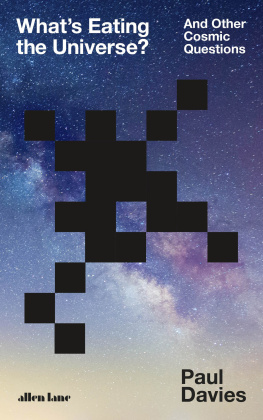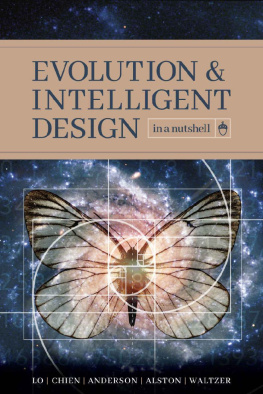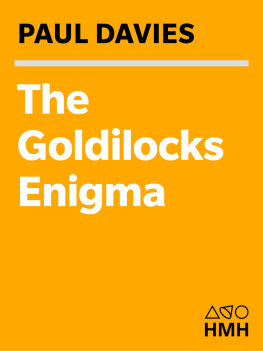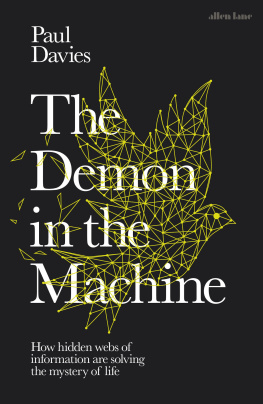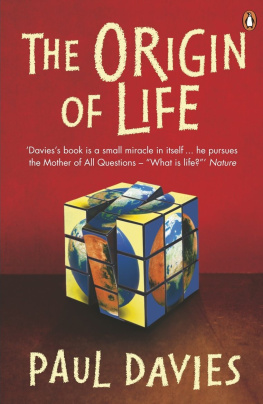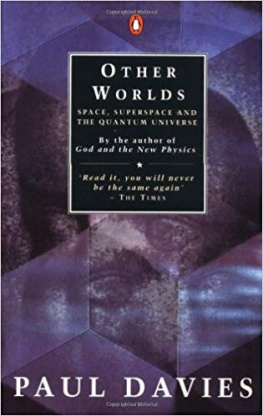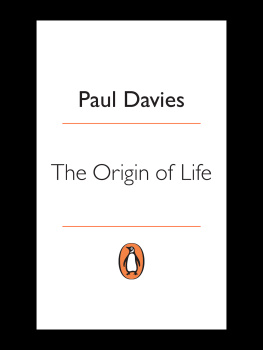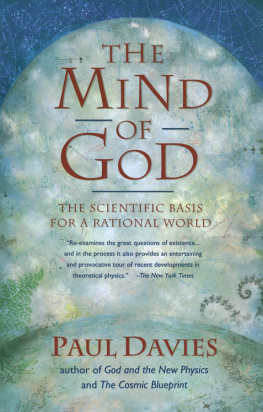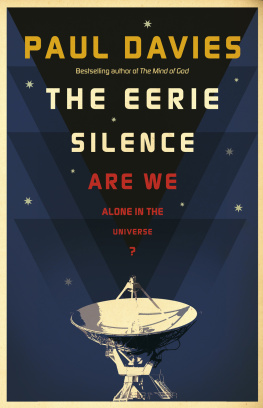Davies - The Fifth Miracle: The Search for the Origin and Meaning of Life
Here you can read online Davies - The Fifth Miracle: The Search for the Origin and Meaning of Life full text of the book (entire story) in english for free. Download pdf and epub, get meaning, cover and reviews about this ebook. City: London, year: 1998, publisher: Simon & Schuster;Allen Lane, genre: Religion. Description of the work, (preface) as well as reviews are available. Best literature library LitArk.com created for fans of good reading and offers a wide selection of genres:
Romance novel
Science fiction
Adventure
Detective
Science
History
Home and family
Prose
Art
Politics
Computer
Non-fiction
Religion
Business
Children
Humor
Choose a favorite category and find really read worthwhile books. Enjoy immersion in the world of imagination, feel the emotions of the characters or learn something new for yourself, make an fascinating discovery.

- Book:The Fifth Miracle: The Search for the Origin and Meaning of Life
- Author:
- Publisher:Simon & Schuster;Allen Lane
- Genre:
- Year:1998
- City:London
- Rating:4 / 5
- Favourites:Add to favourites
- Your mark:
The Fifth Miracle: The Search for the Origin and Meaning of Life: summary, description and annotation
We offer to read an annotation, description, summary or preface (depends on what the author of the book "The Fifth Miracle: The Search for the Origin and Meaning of Life" wrote himself). If you haven't found the necessary information about the book — write in the comments, we will try to find it.
How and where did life begin? Is it a chemical fluke, unique to Earth, or the product of intriguingly bio-friendly laws governing the entire universe? In his latest far-reaching book, The Fifth Miracle, internationally acclaimed physicist and writer Paul Davies confronts one of sciences great outstanding mysteries -- the origin of life.
Davies shows how new research hints that the crucible of life lay deep within Earths hot crust, and not in a warm little pond, as first suggested by Charles Darwin. Bizarre microbes discovered dwelling in the underworld and around submarine volcanic vents are thought to be living fossils. This discovery has transformed scientists expectations for life on Mars and elsewhere in the universe. Davies stresses the key role that the bombardment of the planets by giant comets and asteroids has played in the origin and evolution of life, arguing that these deep impacts delivered the raw material for biology, but also kept life confined to its subterranean haven for millions of years.
Recently, scientists have uncovered tantalizing clues that life may have existed and may still exist -- elsewhere in the universe. The Fifth Miracle recounts the discovery in Antarctica of a meteorite from Mars (ALH84001) that may contain traces of life. Three and a half billion years ago, Mars resembled Earth. It was warm and wet and could have supported primitive organisms. Davies believes that the red planet may still harbor microbes in thermally heated rocks deep below the Martian permafrost. He goes on to describe a still more startling scenario: If life once existed on Mars, might it have originated there and traveled to Earth inside meteorites blasted into space by cosmic impacts? Conversely, did life spread from Earth to Mars? Could microbes have journeyed even farther afield inside comets?
Davies builds on the latest scientific discoveries and theories to address the larger question: What, exactly, is life? Davies shows that the living call is an information-processing system that uses a sophisticated mathematical code, and he argues that the secret of life lies not with exotic chemistry but with the emergence of information-based complexity. He then goes on to ask: Is life the inevitable by-product of physical laws, as many scientists maintain, or an almost miraculous accident? Are we alone in the universe, or will life emerge on all Earthlike planets? And if there is life elsewhere in the universe, is it preordained to evolve toward greater complexity and intelligence? On the answers to these deep questions hinges the ultimate purpose of mankind -- who we are and what our place might be in the unfolding drama of the cosmos
Davies: author's other books
Who wrote The Fifth Miracle: The Search for the Origin and Meaning of Life? Find out the surname, the name of the author of the book and a list of all author's works by series.

